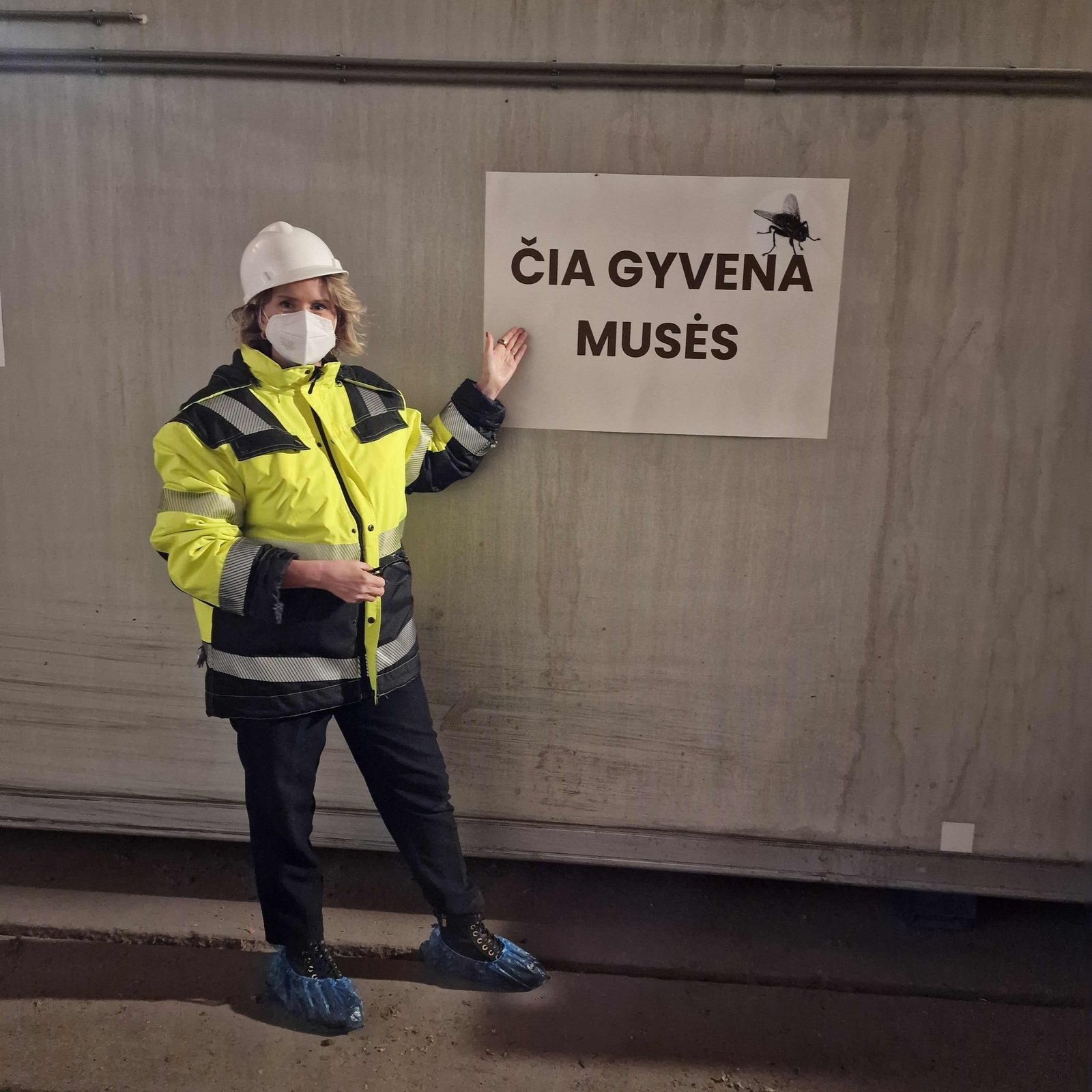We are proud to be among the world’s first industrial facilities to implement the use of fly larvae in the treatment of green kitchen waste. To help encourage residents of the Vilnius region to more actively separate their food waste, influencers Brigita Uyar and Vaida Kurpiene recently visited our plant to see the process up close.
During their visit, they explored how kitchen waste from eight municipalities in the Vilnius region is processed. They were introduced to the equipment used to treat food waste and orange waste bags, and learned how we transform these materials into new products for use in industry, agriculture, and even fishing.
“I spent two full hours at the facility – it was absolutely fascinating! From the waste processing systems to the fly breeding centre, including the egg-laying stations – everything was cutting-edge. I could do an entire podcast about it. I’m always excited about innovations that support circularity and environmental sustainability. Now I truly understand that sorting food waste is worth it,” shared Vaida Kurpiene, a nutritionist and influencer, on her personal Facebook page.
We gave the influencers a full walkthrough of the facility – from the arrival of orange bags, to the separation of kitchen waste from the general stream, to the cultivation of fly larvae and the exploration of end-product applications. Their tour began at a 27-square-metre container that houses around 6 million flies.
This container is connected to a special egg-laying device that attracts flies to deposit their eggs – with each fly capable of laying up to 30 eggs. The eggs are then transferred to a dedicated larvae-rearing system. This tank is filled with organic matter derived from Vilnius residents’ kitchen waste, which becomes feed for the larvae. We estimate that processing one tonne of green kitchen waste can generate up to 90 kg of larvae.
We have invested EUR 1 million in larvae-rearing equipment tailored to the specific needs of Vilnius residents.
The influencers also observed the operation of our orange bag unpacking and sedimentation systems. These machines automatically prepare the larvae feed and remove impurities. The system blends the orange bags, their contents, and water, achieving up to 99% purity in the resulting organic mass.
We also shared our plans for utilising the larvae. Household kitchen waste still contains 30–40% proteins and fats, which we aim to recover through larvae cultivation. Preliminary agreements are already in place for producing protein-rich materials and oils for industrial applications – potentially for use in paint, solvents, and furniture production. The residue of the larvae can be repurposed as agricultural fertiliser, while the organic mass can also be used to produce biomethane.
Vilnius region generates around 40,000 tonnes of green kitchen waste annually, but only about 2,700 tonnes are currently sorted into the designated orange bags. Together with our visiting influencers, we urge all residents to take responsibility for properly sorting their food waste into these special bags and disposing of them in mixed municipal waste bins. We’ll take care of the rest!

